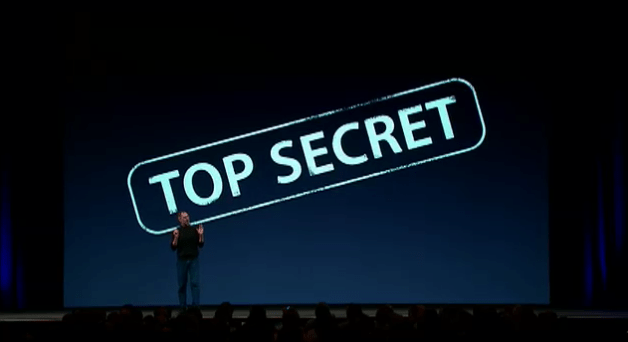Editor’s note: Derek Andersen is the founder of Startup Grind, a 12-city event series helping educate, inspire, and connect entrepreneurs. He’s also ex-Electronic Arts, the founder Commonred, as well as product incubator Vaporware Labs.
WWDC this past week confirmed that Apple is as strong as ever. The company’s steady stream of new products and announcements are a good indication that it’s business as usual. But when will Apple face its first real post-Steve Jobs test? It’s hard to say but not anytime soon.
Last week at Startup Grind in Palo Alto I sat down with Adam Lashinsky, the author of Inside Apple: How America’s Most Admired and Secretive Company Really Works. The book is the most compelling inside look I’ve seen about the culture and attitude that Steve Jobs instilled after his return in 1997, and what it will take to maintain that lead without him.
The first positive or negative indicators will come from within Apple’s walls and work it’s way out. That will start and end with the secrecy that the company maintains. The mystique and intrigue they have kept over the years through their secrecy have helped drive internal product development as well as consumer demand.
While Steve Jobs sought after and coveted publicity like magazine covers and selective interviews in the early days, secrecy was always part of the culture. In a recent Startup Grind Marin interview with MACWEEK founder Michael Tchong, he describes dumpster diving in Cupertino with his staff in the late 1980’s to get product details and tips left in the trash. And you wonder why Steve Jobs was so paranoid. In 1988 Apple launched the Macintosh IIcx and printed a full color spread for all Apple employees as part of the launch. The printed brochure read in part: “Today we launched the Macintosh IIcx worldwide. Too bad it wasn’t the first time it was seen” with a front cover shot of MacWEEK’s exclusive on the release.
In a recent Quora thread on the subject, a former NEXT employee Ken Rosen talked about how early on everything was open. Ken says, “There was even a binder in the CFO’s office with everyone’s salary. We were told we could go check it out any time. Few cared to. Steve told us, “Inside NeXT, everything is open. Outside NeXT, we say nothing.” He added, “This will continue until the first leak. As soon as we prove we can’t keep a secret, we go back to being like every other company.” No one wanted to be the one to kill the open goose.”
Adam describes the secrecy at Apple as cult-like, similar to what you experience in a devoted religion or terrorist cell. There is complete confidentiality that extends to family as well as co-workers. My personal experience speaking with Apple employees over the years has at times been frustrating. It’s fascinating to talk to someone that’s experienced the inside, but getting the classic CIA-like line of “I’m not allowed to talk about that” quickly kills a good conversation. Apple blood oath of silence is positioned as something almost worse than betraying family or country.
But how does Apple manage to enforce this part of the culture? Adam says, “It works because they are believers. If they saw this as a job it would be a lot harder.” In another Quora post, a former employee’s wife describes her husband’s role in Apple’s switch to Intel chips. When Bertrand Serlet saw what the engineer had created while working from home, he told him that his wife is to forget everything she knows, and he will not be allowed to speak to her about it again until it is publicly announced.
So will Apple manage to maintain the secrecy? They will try. Tim Cook recently told the D10 conference that, “We’re going to double down on secrecy on products. I’m serious.” While some product details like the new iPhone and new iPad have leaked out, there’s been nothing major. Generally speaking it feels like Apple employees I know have collectively exhaled just a bit. While they maintain the status quo, secrecy in general seems to be less extreme.
Lashinsky’s recent Fortune cover story talked about the “Top 100” meeting that was held in mid-April this year (watch video below), the first since Jobs’ death. With no major product details from the ultra secret and exclusive meeting leaked, pundits must look at this as another good indicator. Because until that starts happening, Job’s cultural staple of secrecy remains intact.
As Lashinsky recently told me, “He (Tim Cook) could be a caretaker, but it could be a long caretaker period. He might be what they need right now.” With hundreds of millions in options vesting over 10-years, it may be a long period. But like any home where the master is gone and the caretaker is in charge, the tight grip of rules are loosened, and defense usually becomes offense. While that “caretaker” approach might be great for Apple over the next 2-3 years while it iterates on previous homeruns, its not likely to fuel innovation over the next 10-12.
